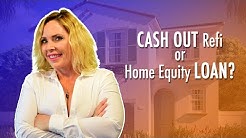Contents
Rates are low, home prices are up, and lenders are loosening cash out refinance rental property guidelines. How to cash out a rental, putting the equity to work.
Here’s how a cash-out refinance works: Pays difference of your mortgage balance and home’s value. Has slightly higher interest rates due to a higher loan amount. Limits cash-out amounts to 80% to 90% of your home’s equity.
Benefits Of Cash Out Refinance A cash-out refinance replaces your current mortgage for more than you currently owe, but you get the difference in cash to use as you need. This calculator may help you decide if it’s something worth considering, and give you a possible idea of a mortgage rate you might have after refinancing.
Use this refinance calculator to see if refinancing your mortgage is right for you. Calculate estimated monthly payments and rate options for a variety of loan terms to see if you can reduce your monthly mortgage payments.
However, refinancing to get cash out may result in a longer loan term or a higher rate, and that might mean paying more in interest overall in the long run. Talk to a Home Loan Expert or use our refinance calculator to see if refinancing your home can help you get cash out.
Cash Out On Investment Property investment properties, and cash- out refinances on second to the eligibility requirements apply if this type of asset is used as qualifying income. See B3- 3.1-09, Other Sources of Income.
A rate-and-term refinance loan replaces your current mortgage with a new loan that has a lower interest rate over approximately the same repayment period, or term. Cash-out refinancing is more common.
According to Freddie Mac’s most recent quarterly refinance survey published august 1, 23% of all refinance loans in the second quarter involved a cash out that increased the borrower’s mortgage.
Cash Out Refi · Eligibility Requirements. Limited cash-out refinance transactions must meet the following requirements: The transaction is being used to pay off an existing first mortgage loan (including an existing HELOC in first-lien position) by obtaining a new first mortgage loan secured by the same property; or for single-closing construction-to-permanent loans to pay for construction costs to build.
 Cash-out refinance pays off your existing first mortgage. This results in a new mortgage loan which may have different terms than your original loan (meaning you may have a different type of loan and/or a different interest rate as well as a longer or shorter time period for paying off your loan).
Cash-out refinance pays off your existing first mortgage. This results in a new mortgage loan which may have different terms than your original loan (meaning you may have a different type of loan and/or a different interest rate as well as a longer or shorter time period for paying off your loan).
What is a cash-out refinance? A cash-out refinance lets you access your home equity by replacing your existing mortgage with a new one that has a higher loan amount than what you currently owe. When you close on your loan, you’ll get funds you can use for other purposes. Is a cash-out refinance the right move for you?
A cash-out refinance can come in handy for home improvements or paying off debt. A cash-out refi often has a lower rate than a home equity loan, but make sure the rate is lower than your current.

